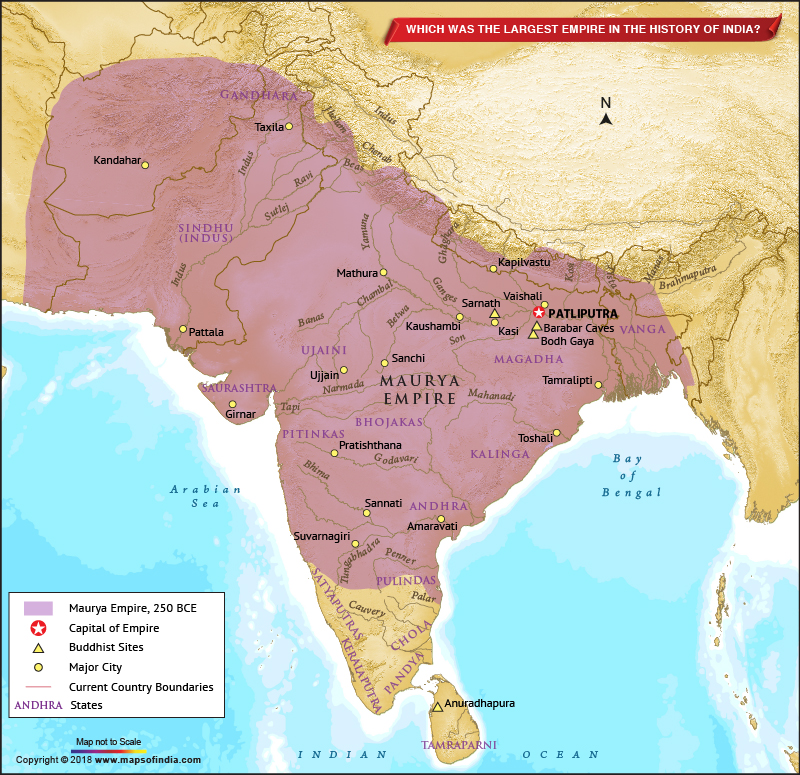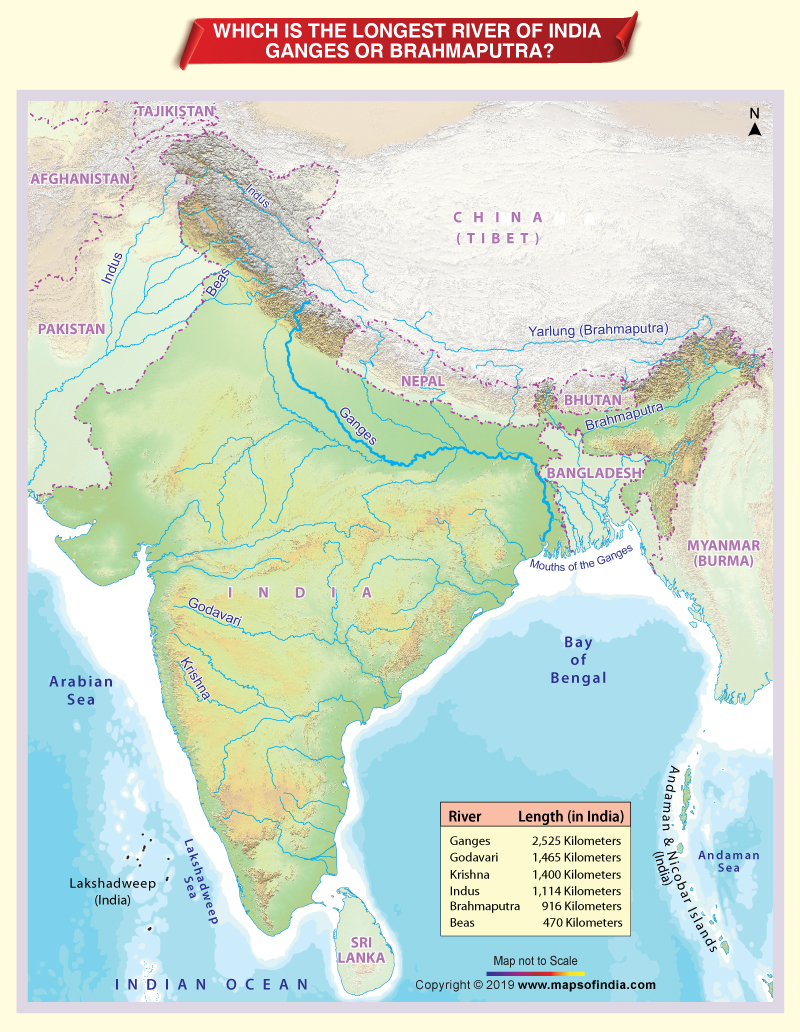
The Maurya Empire was the largest empire in India with an estimate of 50 lakh square kilometres extent in the country. It is believed that the maximum spread was in the 250 BC. Founded by Chandragupta Maurya, the empire was based in Magadha and dominated the country between 321 and 187 BCE. It was at its pinnacle during the rule of Ashoka. The empire had control over the major parts of south Asia as well. The largest ever existed empire was centralised when it conquered the Indo-Gangetic Plain. Pataliputra (now Patna) was its capital.
With the assistance of the royal advisor Chanakya, Chandragupta Maurya successfully raised an army and took over the Nanda Empire in 322 BCE. He then rapidly extended his rule towards the west and by 317 BCE, the whole of Northwestern part of India was under the Mauryan rule. The empire further conquered territory which lay west of the Indus River after defeating Seleucid Empire.
During its largest extent, Maurya empire had a stretch into the west in the Hindu Kush mountains (now in Afghanistan) & Balochistan (now southeast Iran and southwest Pakistan), in the east into Assam, and in the north along the Himalayas’ natural boundaries. The empire into south was extended by both Chandragupta and Bindusara. This, however, didn’t include Kalinga (now Odisha), which was later conquered by the emperor Ashoka. Post the Kalinga War, the Maurya empire witnessed about 50 years of security and peace under the rule of Ashoka. After the end of Ashoka’s rule, the empire kept on declining for nearly 50 years. In 185 BCE, it was finally dissolved and Shunga dynasty was founded in Magadha.
Due to the single efficient system of administration, finance, and security, economic activities, agriculture, and both internal & external trade thrived across the country under the Maurya empire. Mauryan age also experienced religious transformation, social harmony, and spread of science and knowledge.
![]()



